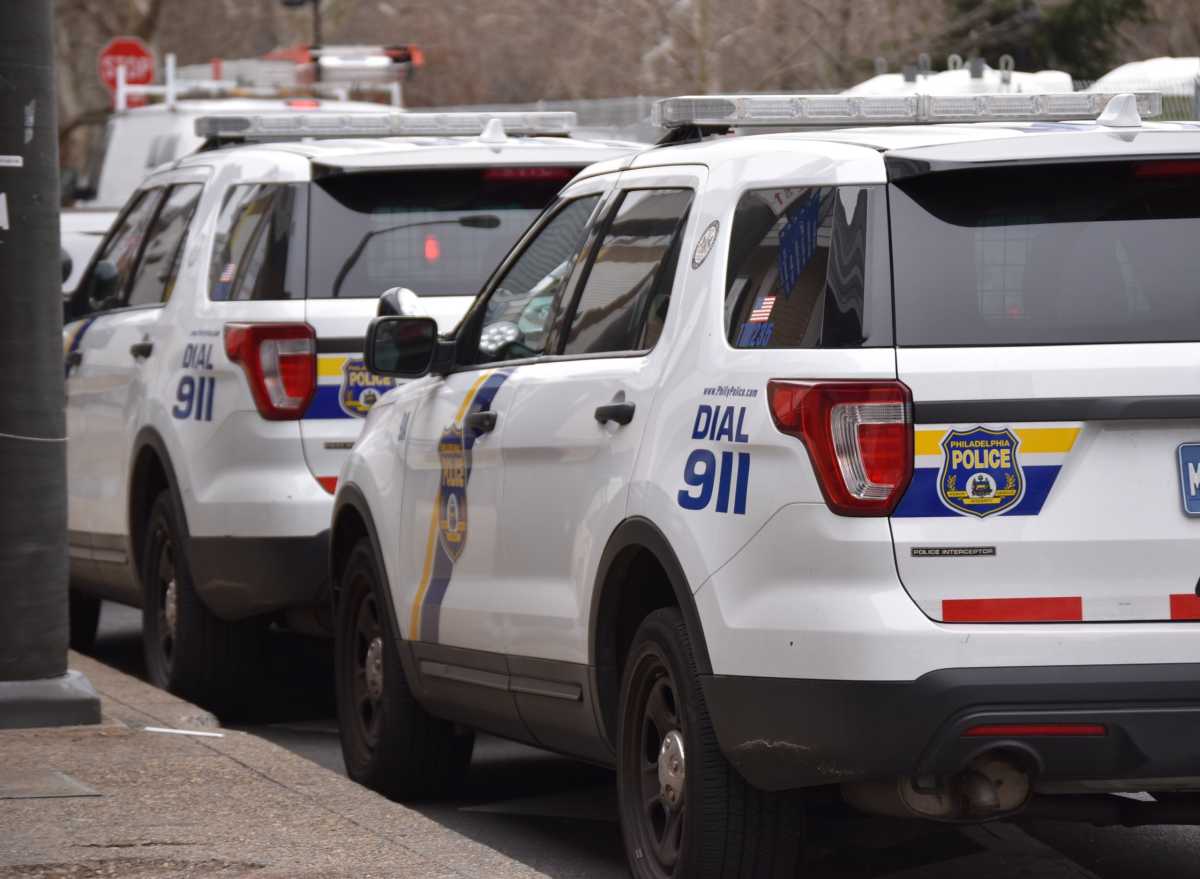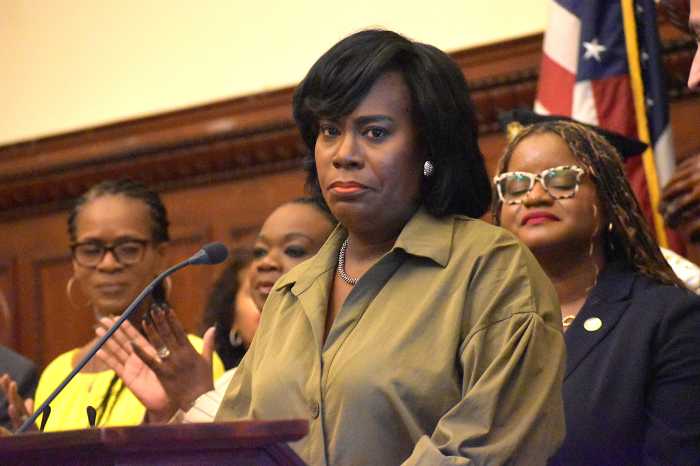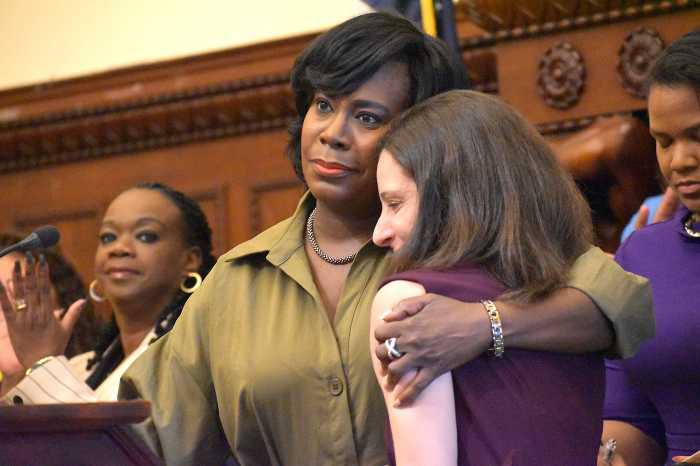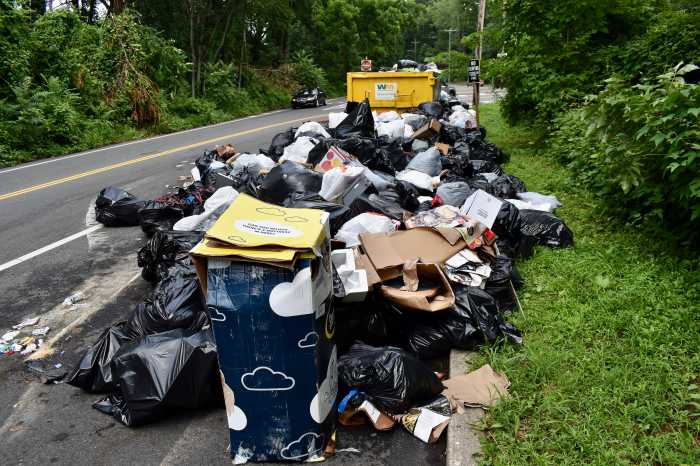Mayor Cherelle Parker and Fraternal Order of Police Lodge 5 leaders appear pleased with the new two-year union labor agreement for Philadelphia’s police officers that was announced Friday.
The Citizens Police Oversight Commission – an entity created in 2021 amid a push for police reform in the aftermath of George Floyd’s death and subsequent activism – feels differently.
Tonya McClary, the commission’s executive director, said the deal, reached through binding arbitration, “ignored city law and the input of Philadelphians” in declining to incorporate a provision to give CPOC the authority to launch independent investigations into police misconduct.
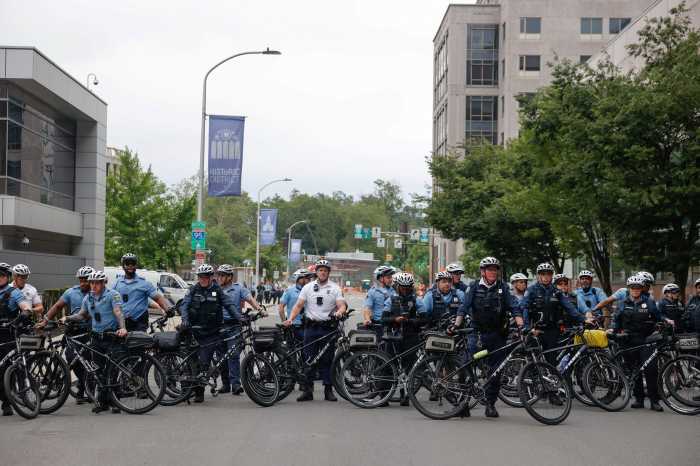
“We came prepared, we made the case, and we spoke with one voice alongside the community. We provided testimony from national law enforcement experts about CPOC’s ability to conduct independent investigations,” McClary said in a statement. “Despite all of that, we were not awarded the opportunity to do so. Philadelphia still needs and wants independent investigations that are fair, thorough, and unbiased.”
The police contract is determined by a arbitration three-person panel, based on proposals from the FOP and city. One member is neutral, while the other two were selected by the union and Parker administration, respectively.
In a 14-page document, known as an award, the panel said they decided to decline the city’s proposal to expand the powers of CPOC and the FOP’s offer to exclude the body from the officer disciplinary process entirely.
“Moving forward, the panel recommends that the Commission invest in fostering stronger relationships with both the Police Department and the FOP as it fulfills its current role,” the arbiters wrote.
Commission representatives, in a statement Friday, blamed Parker’s team, saying the city “did not partner with CPOC or champion CPOC’s investigative authority.”
CPOC leadership decried what it characterized as a closed-door process. Commission leaders were given a “brief timeslot to testify independently” and shut out other hearings, which were held over 11 days between March and June, officials said.
Adam Geer, Parker’s chief public safety director, acknowledged during a Friday afternoon news conference that the panel did not side with the city on some requests related to CPOC.
“That does not diminish the great work that CPOC is already doing in our police department around discipline, in our processes already, the work that they’ve been doing since our last award,” he added. “While the panel didn’t award it this time around, we will continue to be an advocate for the work that is coming out of that office and support them.”
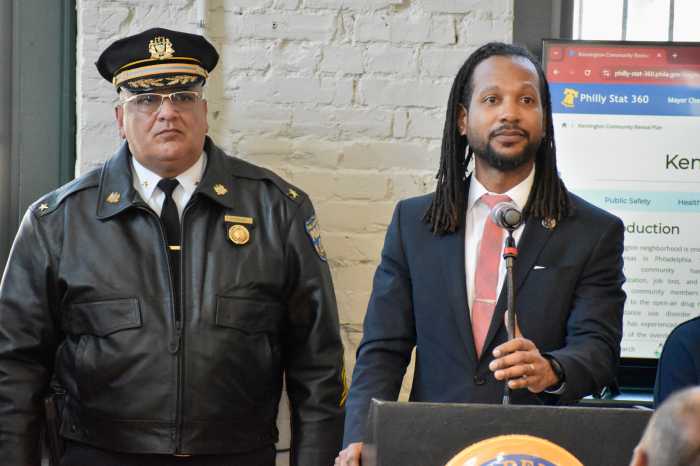
“We will have zero tolerance for any misuse or abuse of authority by our law enforcement officers,” Parker told reporters at the same briefing. “But I will be unapologetic about my support for them, especially when you look at the sacrifice that they make for the people in our city on a daily basis.”
The FOP, in a summary of the contract provided to members, highlighted a bullet point stating that the arbitration panel denied all proposals related to the commission.
City Councilmember Curtis Jones Jr., whose legislation created CPOC after voters approved a related ballot question, said the commission, in light of the award, “will have to be creative in providing well informed investigations.”
“CPOC was created to serve the people of Philadelphia. That doesn’t stop because unelected arbitrators say ‘no,’” McClary said. “We are reviewing all options to secure the accountability system this city deserves.”



